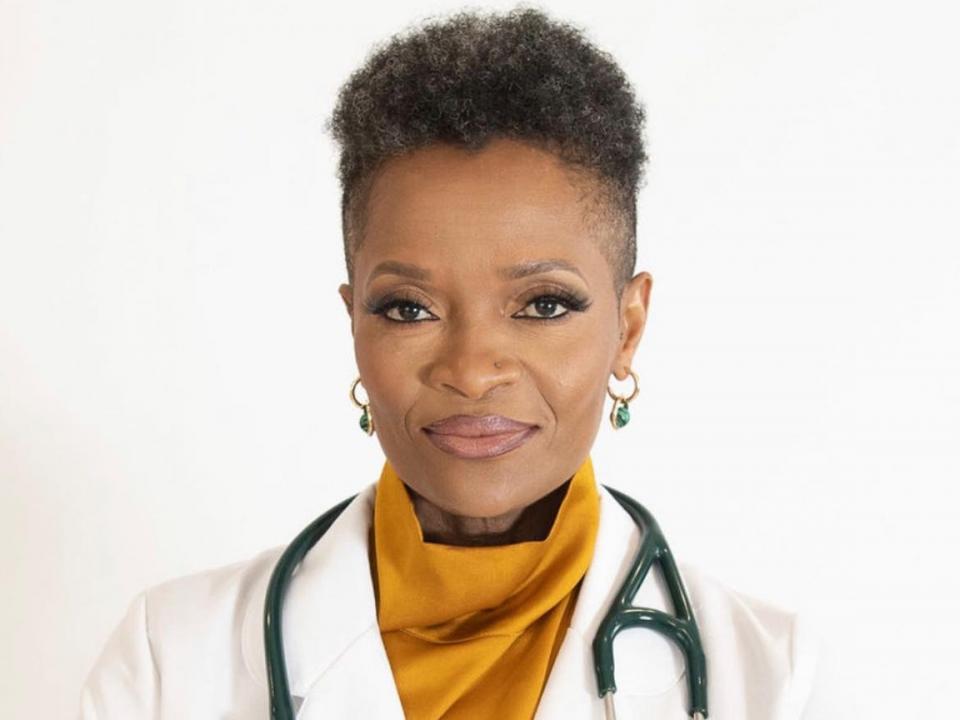Doctor of Nursing Practice
Doctor of Nursing Practice
There are 2 degree pathways. Based on the admission application, a student can seek admission to the BSN to DNP degree or Post-Master's DNP degree. The BSN to DNP pathway includes courses for preparation as a Family Nurse Practitioner (FNP). The pathways can be completed in a traditional or hybrid format. The DNP pathways also include executive-format courses on Fridays and Saturdays for some classes. Students have the option to complete the program full-time or part-time.
Because this is a practice-focused program, each student must complete a total of 1000 clinical practice hours. At least 300 hours must be completed as part of the Post-Master's. For the Post-Master's pathway, students may transfer up to 700 hours from an accredited MSN degree program.
Learn how to:
- Advance nursing practice by applying clinical expertise and advanced knowledge from the sciences, humanities and ethics
- Advance nursing practice through application of knowledge and evaluation of nursing theories and concepts
- Plan, engage and participate in clinical scholarship for evidence practice.
- Provide and design care for vulnerable, underserved, culturally diverse clients using health promotion strategies.
- Plan, initiate and evaluate changes in health care policy and the healthcare system.
- Analyze epidemiological, statistical, environmental, and other data regarding individuals, families and the community.
- Integrate nursing science with emerging technology and information systems to identify, gather, process, manage and evaluate healthcare outcomes, the healthcare delivery system and investigate healthcare issues to improve quality.
- Develop and evaluate organizational and systems leadership for quality improvement and systems thinking.
- Demonstrate and integrate interprofessional collaboration for improving patient and population health outcomes to foster continuity of care.
- Advocate for health care and policies that promote client health and the advancement of nursing as a profession.
- Use professional standards in advanced practice nursing roles.
- Develop and evaluate new practice approaches based on nursing theories and theories from other disciplines.
- Demonstrate inter and intra professional effective communication necessary for activities that enhance the care environment to include planning, implementation and evaluation of care to target populations.

750+ Course Options
The Coppin State University Academic Catalog has a wide variety of skill-building courses designed to inspire and prepare you to be in-demand professionals and transformational leaders.
The program responds to the health personnel trends and needs of diverse communities. Courses focus on the roles and responsibilities of being a Family Nurse Practitioner, and preparing students to practice and lead family health care across a variety of health care environments.
Our program provides the space for practicing nurse professionals to learn and advance the skills needed to serve as experts in the specialized area of family practice. Graduates incorporate advanced theory and research into the competencies required to assume responsibility and accountability for the health promotion, assessment, diagnosis, and management of health for issues related to culturally diverse clients and their families.
DNP Post-Master's Pathway Admission Requirements
The DNP is an advanced degree that builds on skills and competencies learned in Bachelor’s and Master’s coursework. Admission requirements include:
- Master’s degree in Nursing from a program accredited by the Accreditation Commission on Collegiate Nursing Education (ACEN) or Commission on Collegiate Nursing Education (CCNE) or an equivalent degree from a non-U.S. college or university
- Minimum 3.25 cumulative grade point average (GPA) in a Nursing Master’s degree or equivalent program
- Official transcripts from each college or university attended
- Unencumbered R.N. licensure in the State of Maryland
- 3 letters of recommendation
- Resume or curriculum vitae
- Application essay detailing goals, objectives, and reason(s) for pursuing the DNP
- Writing sample
- Proof of research activity
- Interview with faculty (for students who meet all admission criteria)
DNP Mission and Philosophy
We prepare graduate-level nurses to practice at the most advanced level of nursing. Aligning with the overall goal of the Helene Fuld School of Nursing to advance nursing practice, the doctoral program builds on the foundation of undergraduate and graduate education. Our curriculum places special emphasis on preparing nurses to provide high quality care to vulnerable and underserved urban communities.
Graduates incorporate advanced theory, research, advocacy, leadership and clinical skills with an emphasis on independent and interprofessional practice required to assume responsibility and accountability for the health promotion, assessment, diagnosis, and management of culturally diverse clients' problems across settings.
Graduation Requirements
All DNP students must demonstrate and complete the following criteria to be eligible for graduation:
- 3.0 cumulative GPA
- Grades of B or better in all doctoral coursework
- Success completion of DNP Scholarly Project
- 1000 clinical practice hours
Study Plan
Be sure to connect with your academic advisor to plan your semester courses. While most graduate students follow this study plan, your journey may have different requirements.
Fall Semester (9 credits)
| Course | credits | name |
|---|---|---|
| NURS 830 | 3 | Research Methods and Design for Nursing Practice |
| NURS 831 | 3 | Theoretical Perspectives in Nursing Practice |
| NURS 832 | 3 | Foundations for Evidence-Based Practice |
Wintermester (1-4 credits)
| course | credits | name |
|---|---|---|
| NURS 840 * | 1-4 | DNP Seminar (optional) |
Students can take the DNP Seminar for anywhere from 1-4 credits based on goals and objectives.
Spring Semester (12 credits)
| course | credits | name |
|---|---|---|
| NURS 834 | 3 | Analysis of Health Care Delivery Systems |
| NURS 835 | 3 | Epidemiology/Biostatistics |
| NURS 833 | 3 | Global Health: Perspectives of Health |
| NURS 838 | 3 | DNP Project I (135 Practicum Hours) |
Summer Semester (5-9 credits)
| course | credits | name |
|---|---|---|
| NURS 833 | 3 | Global Health: Perspectives on Health |
|
NURS 860 or NURS 850 |
1-4 |
Leadership DNP Practicum I
Health Policy Practicum I |
| NURS 863 | 1-2 | Leadership Seminar I |
Fall Semester (9 credits)
| Course | credits | name |
|---|---|---|
| NURS 836 | 3 | Health Policy Analysis |
| NURS 837 | 3 | Nursing Information Technology and Analysis |
| NURS 839 | 3 | DNP Project II (135 Practicum Hours) |
Spring Semester (2-6 Credits)
| Course | credits | name |
|---|---|---|
|
NURS 861 or NURS 851 |
1-4 |
Leadership DNP Practicum II or Health Policy Practicum II |
| NURS 864 | 1-2 | Leadership Seminar II |
Summer or Fall Semester (2-6 Credits)
| Course | credits | name |
|---|---|---|
|
NURS 861 or NURS 851 |
1-4 |
Leadership DNP Practicum II or Health Policy Practicum II |
| NURS 865 | 1-2 | Leadership Seminar III |
Related Nursing and Health Programs
Nursing
Nursing
Nursing is in the Helene Fuld School of Nursing in the College of Health Professions.




